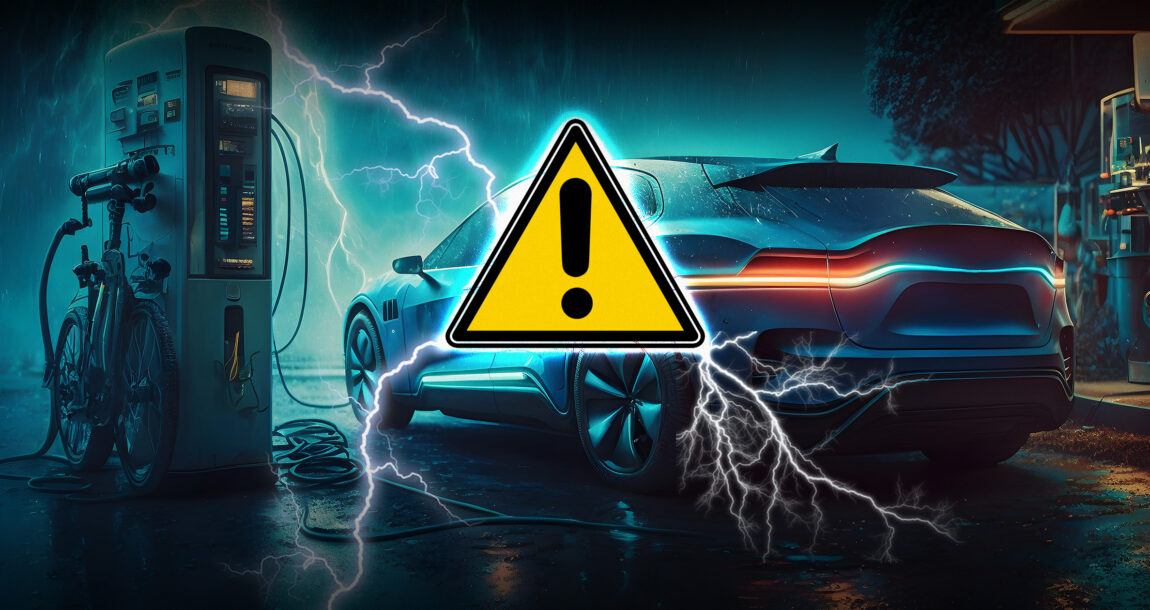Electric vehicles: What are the risks?

The automotive industry is betting its future on the widespread adoption of electric vehicles. But what are the risks involved as more EVs take to the highways? An industry expert looked at what the electric revolution could mean for insurance at a recent webinar by the Society for Insurance Research.
Devin Lindsay, principal analyst for automotive at S&P Global Mobility, discussed some of the risks involved with EVs.
More research must be done as more electric vehicles hit the roads, Lindsay said. He cited research from the Highway Loss Data Institute that said crash avoidance features in EVs seem to benefit young drivers more than other drivers. The institute also found that as vehicles aged, conventional gasoline-powered vehicles were more likely to be totaled, while EVs had relatively fewer front-impact claims but more rear-impact claims.
Researchers also looked at safety, maintenance costs and accident repair costs between gasoline-powered vehicles and EVs, Lindsay said. They found:
- Electric vehicles have no engine damage in front-end collisions.
- Gasoline-powered vehicles are more expensive to maintain than electric vehicles.
- But electric vehicles are more expensive to repair in the event of an accident. They feature more lightweight components and panels to offset the weight of the battery, increasing repair costs. In addition, repair shops must invest in new equipment and training for mechanics to repair electric vehicles, as well as face increased replacement part costs and increased wait times for parts.
One quandary for insurers, Lindsay said, is the electric vehicles tend to be heavier than gasoline-powered vehicles but also have increased performance, which is not the combination for safety purposes. That combination of speed and weight impacts the safety of those in lighter gasoline-powered vehicles as well as pedestrians and bicyclists, he said.
Insurers also must consider what Lindsay called the “good sociology” that widespread adoption of electric vehicles will bring about. Will there be enough charging stations available? Will they be located in remote areas or mainly concentrated in cities and suburbs? What about the theft rates of EVs?
“Consumer ‘buy-in’ of electric vehicles should not be taken for granted. The insurance industry will have a tremendous impact on the perception and cost of ownership of electric vehicles,” he said.
Susan Rupe is managing editor for InsuranceNewsNet. She formerly served as communications director for an insurance agents' association and was an award-winning newspaper reporter and editor. Contact her at [email protected]. Follow her on Twitter @INNsusan.
© Entire contents copyright 2023 by InsuranceNewsNet.com Inc. All rights reserved. No part of this article may be reprinted without the expressed written consent from InsuranceNewsNet.com.
Susan Rupe is managing editor for InsuranceNewsNet. She formerly served as communications director for an insurance agents' association and was an award-winning newspaper reporter and editor. Contact her at [email protected].





Half of pre-retirees doubt Social Security viability
Interest grows in annuities as part of employer-sponsored retirement plans
Advisor News
- Estate planning during the great wealth transfer
- Main Street families need trusted financial guidance to navigate the new Trump Accounts
- Are the holidays a good time to have a long-term care conversation?
- Gen X unsure whether they can catch up with retirement saving
- Bill that could expand access to annuities headed to the House
More Advisor NewsAnnuity News
- Insurance Compact warns NAIC some annuity designs ‘quite complicated’
- MONTGOMERY COUNTY MAN SENTENCED TO FEDERAL PRISON FOR DEFRAUDING ELDERLY VICTIMS OF HUNDREDS OF THOUSANDS OF DOLLARS
- New York Life continues to close in on Athene; annuity sales up 50%
- Hildene Capital Management Announces Purchase Agreement to Acquire Annuity Provider SILAC
- Removing barriers to annuity adoption in 2026
More Annuity NewsHealth/Employee Benefits News
Life Insurance News
- Reliance Standard Life Insurance Company Trademark Application for “RELIANCEMATRIX” Filed: Reliance Standard Life Insurance Company
- Jackson Awards $730,000 in Grants to Nonprofits Across Lansing, Nashville and Chicago
- AM Best Affirms Credit Ratings of Lonpac Insurance Bhd
- Reinsurance Group of America Names Ryan Krueger Senior Vice President, Investor Relations
- iA Financial Group Partners with Empathy to Deliver Comprehensive Bereavement Support to Canadians
More Life Insurance News